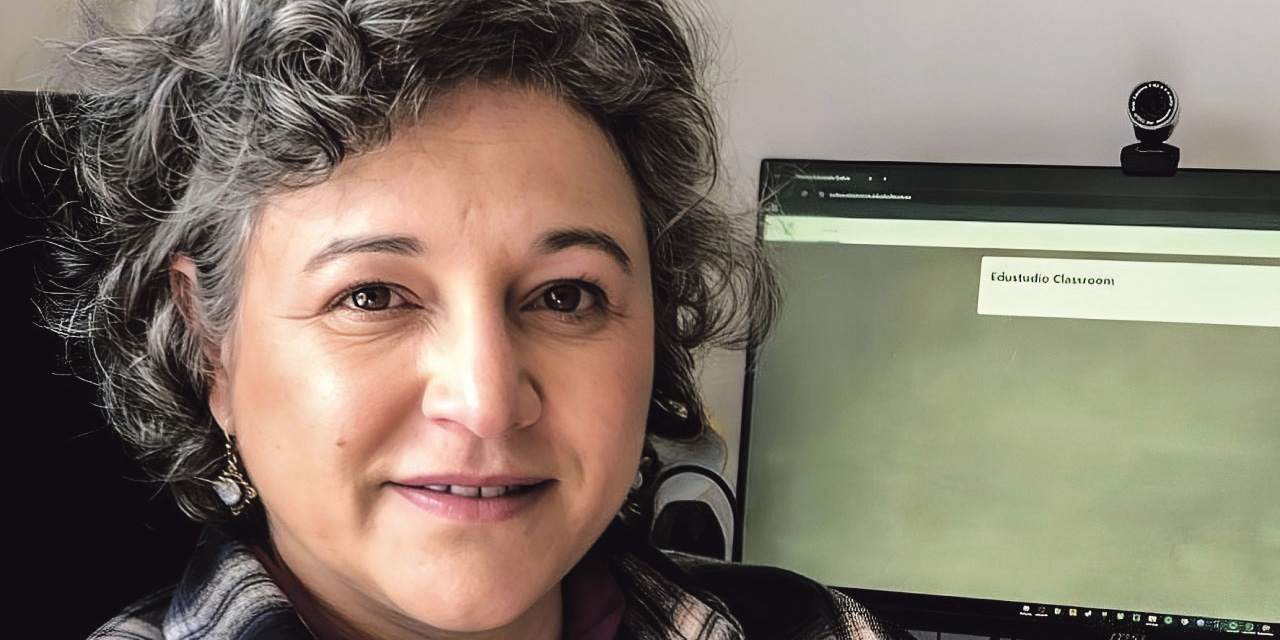Former further education and training college teacher and Stellenbosch University lecturer Tersia du Plessis is doing her bit to help unplaced Grade 8s by offering free online teaching to those who have not been placed in schools and who could be locked out of education for months.
Du Plessis said she started teaching via home schooling after Covid-19 and has been teaching learners at home ever since. She uses an online learning management system (LMS), Moodle, and says learners only need a basic smartphone to join classes.
Now she wants the Department of Education “to help me give those learners access to my learning management site”.
Her LMS uses activities she designed herself, according to the standards. “The difference is, the child logs in, he’s a learner, his work is assessed by the system and he gets a report, he gets feedback. And when that child can be accommodated in a school, there’s a record of what he’s done…”
In March 2025, the Western Cape Education Department (WCED) noted that more than 33,000 Grade 7s in the province had not yet applied for Grade 8 in 2026. The reasons for this ongoing problem include parents not applying in the given timeframe, pupils placed in schools far away and delays in allocating space for a pupil.
Read more: Western Cape teachers worry over threats to quality as classrooms overflow
Du Plessis emphasised that her offer is not about profit but a passion for education.
“I don’t want to make money; this is something I am willing to do because I feel I’ve already done the work for my students. I see kids walking the streets and I know they should be in school. […] As a citizen of this country I feel I have something to offer, and my primary focus is on English, Afrikaans, maths, natural science, history and geography.”
The uncertainty around school placement is stressful for parents. Vanessa le Roux, founder of Parents for Equal Education South Africa, said: “If children are not placed they are bound to fall into the social ills of our communities. The only solution is the need to build schools. However, inequalities need to be addressed regarding the number of learners in a classroom for model C and township schools. Children are placed far from their communities, and this can cause dropouts.”
Asked for the figures for unplaced pupils, WCED spokesperson Bronagh Hammond said the department is still placing pupils and will release numbers later in the year.
“In the past two years, over 99% of learners applying to schools have been placed before the end of the school year. The challenge is the immediate placement of learners who apply late in the new school year, in January and February. In these circumstances, placement may not be immediate, pending the specific requirements for the learner […] in a particular community, which could already be oversubscribed for a particular grade. We do, however, ensure that all learners are offered a place,” Hammond said.
She added that this year the WCED will spend R2.862-billion on school infrastructure to expand access to education and upgrade school buildings and facilities in the Western Cape. And over the next three years the department aims to complete 29 new and replacement schools in the province.
However, Du Plessis said: “The thing is that this is not a new problem. They’re not going to build 10 new schools in the Western Cape in the next five years. My frustration is [that] I want to say I can help. If it helps one Grade 8 learner, it makes a difference, and I’m convinced it can help more than one.” DM
Contact Tersia du Plessis at kruisvry@gmail.com.
This story first appeared in our weekly Daily Maverick 168 newspaper, which is available countrywide for R35.





 Cape Town educator Tersia du Plessis is offering free online lessons to unplaced pupils. Photo: Supplied
Cape Town educator Tersia du Plessis is offering free online lessons to unplaced pupils. Photo: Supplied